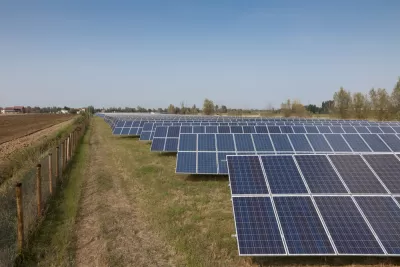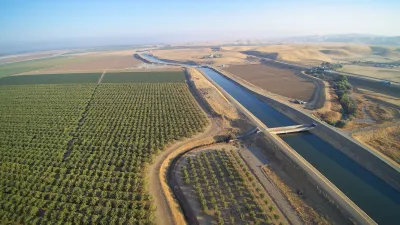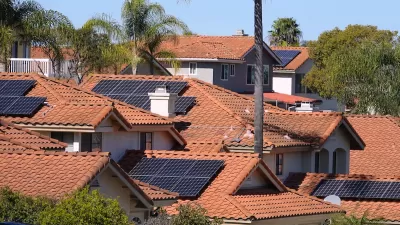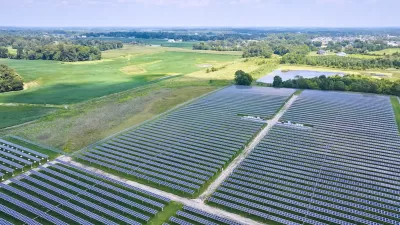If SF 2171 wins approval in the Iowa State Legislature, solar will have a limited number of options for installation on agricultural land.

Katie Peikes reports for Iowa Public Radio on a bill moving through the Iowa State Senate that would limit the placement of solar panels on farmland around the state.
"Under the bill, solar panel fields could only be installed on less productive farmland. They also must be at least half a mile from other solar panel fields and not less than 1,250 feet from the nearest neighboring landowner," reports Peikes.
The definition of productive farmland is set to the Iowa State University Extension and Outreach's Corn Suitability 2 Index. "Under the proposal, people can’t install a solar panel field on agricultural land unless the land they want to install it on has a corn suitability rating of 65 or lower. These soils would have less of a corn yield than soils with a rating higher than 65," according to Peikes.
The bill, SF 2127, advanced this week out of the Senate Agricultural Committee, with the debate split on party lines. More on the political debate prompted by the bill and the organizations taking sides on the bill is included in the source article below.
Iowa isn't the only jurisdiction to attempt to limit solar installations in the past year. Delaware County, Indiana briefly implemented a moratorium on solar installations in January of this year, rescinding the moratorium before the end of the month. The state of Louisiana approved two bills in 2021 designed to slow the development of solar power in response to concerns from the state's farmers.
FULL STORY: Iowa lawmakers advance a bill placing restrictions on solar panels built on farmland

Alabama: Trump Terminates Settlements for Black Communities Harmed By Raw Sewage
Trump deemed the landmark civil rights agreement “illegal DEI and environmental justice policy.”

Planetizen Federal Action Tracker
A weekly monitor of how Trump’s orders and actions are impacting planners and planning in America.

Why Should We Subsidize Public Transportation?
Many public transit agencies face financial stress due to rising costs, declining fare revenue, and declining subsidies. Transit advocates must provide a strong business case for increasing public transit funding.

Understanding Road Diets
An explainer from Momentum highlights the advantages of reducing vehicle lanes in favor of more bike, transit, and pedestrian infrastructure.

New California Law Regulates Warehouse Pollution
A new law tightens building and emissions regulations for large distribution warehouses to mitigate air pollution and traffic in surrounding communities.

Phoenix Announces Opening Date for Light Rail Extension
The South Central extension will connect South Phoenix to downtown and other major hubs starting on June 7.
Urban Design for Planners 1: Software Tools
This six-course series explores essential urban design concepts using open source software and equips planners with the tools they need to participate fully in the urban design process.
Planning for Universal Design
Learn the tools for implementing Universal Design in planning regulations.
Caltrans
Smith Gee Studio
Institute for Housing and Urban Development Studies (IHS)
City of Grandview
Harvard GSD Executive Education
Toledo-Lucas County Plan Commissions
Salt Lake City
NYU Wagner Graduate School of Public Service





























